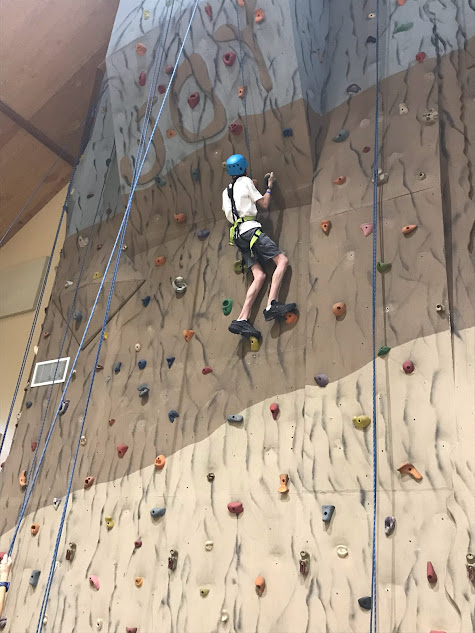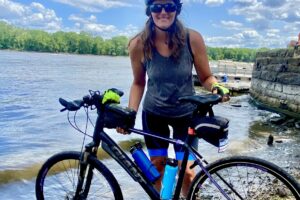My family has an extensive history of DVTs and PEs leading up to my teen’s blood clotting episode. I have three grandparents with confirmed clots, one of whom had a filter placed. One of my parents and their sibling both had multiple clots.
My teen had spinal fusion with rods for scoliosis, and because of a number of complications, my teen didn’t have the energy to be active in the hospital. We went home after my teen appeared to be catching up with the expected activities post-surgery. At home, my teen continued to make progress and was able to walk up and down the street.
Several days after being released from the hospital and about a week post-surgery, my teen had sudden onset chest pain and was severely out of breath.
Once at the ER, we described symptoms, observed and pointed out new symptoms, and discussed our teen’s personal and family history. We clearly indicated our concerns about pneumothorax (a risk factor specific to our teen) but also about pulmonary emboli.
Our teen cycled through weird pains, breathlessness, agitation, extreme hunger sensation, and mental status changes, but oxygen saturation was not particularly low.
Our teen had an EKG that was mildly abnormal, so the nurse was blamed for an insecure lead (she had, in fact, took extra measures to secure it), and the test was repeated (normal the second time).
The results were not the most common findings for PE, but are a reason to suspect PE regardless. My spouse is a healthcare provider who requested a D-dimer test after identifying as a healthcare provider, but that testing was still denied.
In follow-up with the surgical nurse assigned to us, it was insinuated that our teen had anxiety attacks and that going to the ER again would not result in a different outcome.
After much advocacy, a provider ordered a D-dimer as an outpatient, which led to another ER visit and a weeklong stay for PEs.
Our teen also tested positive for antiphospholipid syndrome (APS).
Advocating for a medically complex teen gets easier after a near-miss event, but that shouldn’t have to be the case. NBCA has been extremely helpful, so I am volunteering as a Thrombassador.
My advice to others is to ask for a patient advocate or social worker if you feel like your concerns are not being addressed.
Resources
Blood Clots in Children
How is a PE Diagnosed?
Know Your Risk




